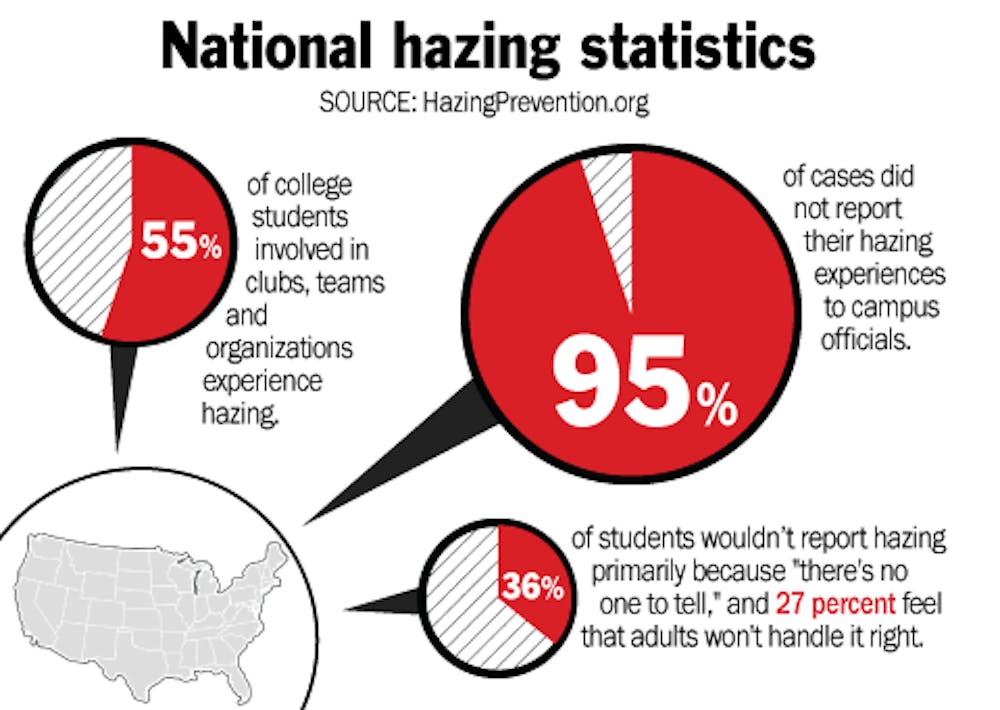
Penn is proactively taking steps to combat the hazing on campus with a new approach that doesn’t focus solely on Greek life.
A new Anti-Hazing Working Group, which consists of students and staff across many areas of student life, held its third meeting on Monday.
The group aims to further explore and understand hazing, said Executive Director of the Office of Student Affairs, Katie Bonner , who is leading the group. The group aims to “[pull] out central themes” about hazing, rather than identify particular problem groups, she added.
Ultimately, the group’s goal is to create a set of recommendations for the University on how to combat hazing at Penn. Bonner hopes that some recommendations for changes will be in place by the fall, although no target date has been set for the release of a final set of suggestions.
The working group includes student representatives from Greek life, performing arts groups, and the Undergraduate Assembly, as well as student athletes. The wide range of representatives will “broaden” the discussion around hazing to more than just the “typical rhetoric” of its association with Greek life, Bonner explained.
“I think it is really important that all student groups, not just Greek life, are represented in these discussions,” College junior Brandon Fleischer , a representative of performing arts groups, said in an email.
“Hazing can happen at any group at Penn,” he said. That’s why members of the working group should “come from all communities” so that policies “can be delivered to all communities,” he added.
At the group’s first meeting in December, it addressed the specifics of an actual definition of hazing, Bonner said.
She said that including student discussions about hazing is helping University staff understand the best ways to approach the problem.
“Hazing covers everything — it’s kind of daunting,” Bonner said. She explained how student presence in the working group is helping it understand the problem of how wanting to belong to a student group prevents students from reporting hazing.
So far, the group has found that students often don’t trust the administration enough to report issues surrounding hazing.
Monday’s meeting involved research into how Penn’s peer institutions approach hazing, said Interfraternity Council President and College junior Jimmy Germi , who is the student representative for Greek life in the group.
He said examining other schools’ policies will allow the group to assess what new strategies “would fit best at Penn,” he said.
The group is looking for “ways to develop a culture where students can ask for help and assistance,” Germi said.
“We know that hazing exists and that it is a significant issue,” Bonner said. However, she said that no specific incidents prompted the creation of the group.
“I don’t by any means think we’re in a crisis,” she said, “more that I think the student community is in a place where they can be challenged to provide a better community.”
The Daily Pennsylvanian is an independent, student-run newspaper. Please consider making a donation to support the coverage that shapes the University. Your generosity ensures a future of strong journalism at Penn.
DonatePlease note All comments are eligible for publication in The Daily Pennsylvanian.








